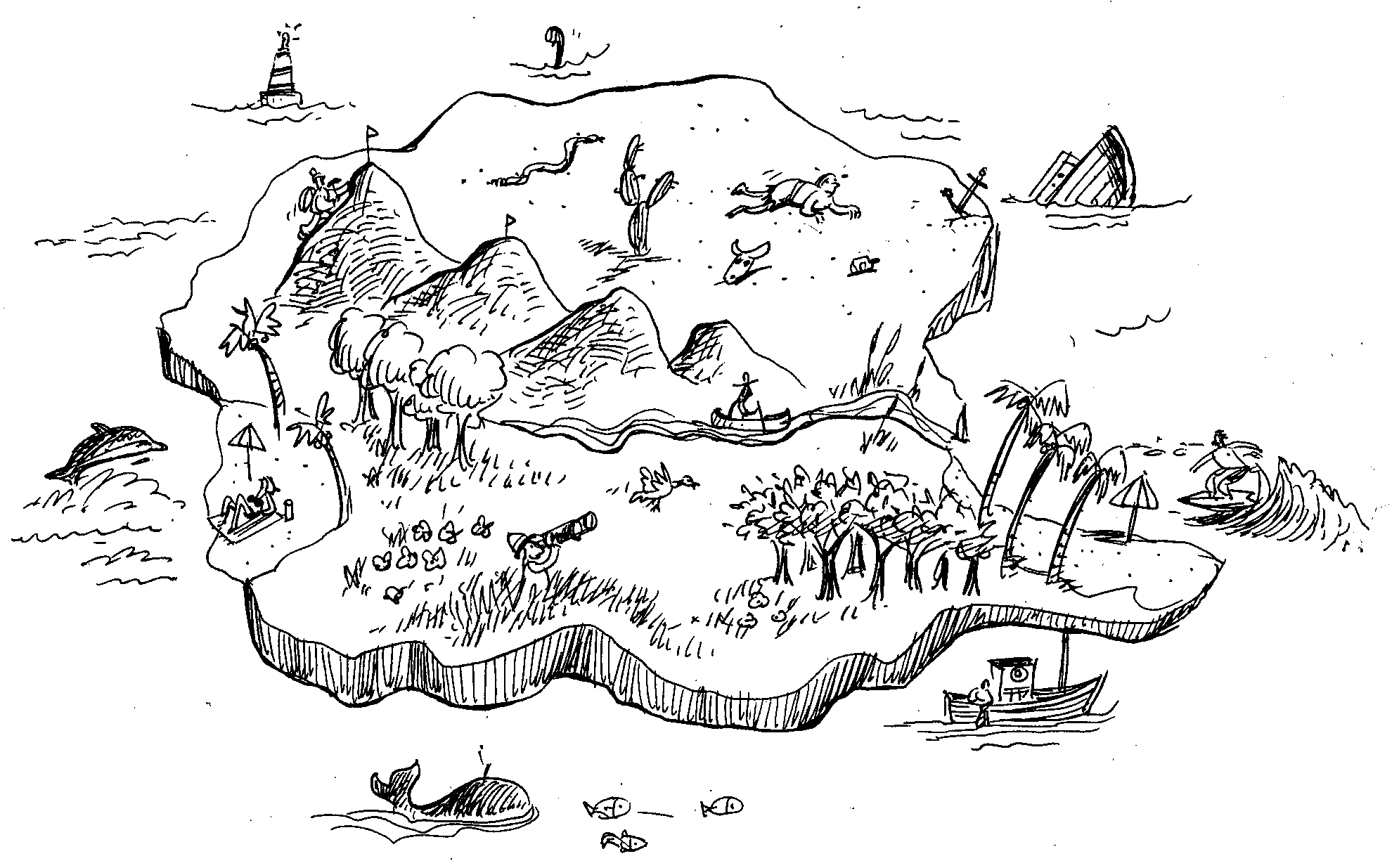| << Chapter < Page | Chapter >> Page > |
The fact that our needs and wants are greater than our bank balance probably is the greatest problem that most people have to cope with every day. This compels people to make choices about the needs that they will meet. They also have to make decisions about the most effective way in which to use the resources that are available when they meet these needs.
Assignment
Let’s do an exercise to determine what the minimum resources for survival are.
You were on board a small aeroplane that crashed on an island in the Pacific Ocean and was destroyed by fire. You are the only survivor and all you have with you are …
1 box of matches
the clothes that you are wearing
a map of the island and the surrounding ocean

1. While you are wandering around exploring the island, you discover the following:
there is a river, so you have fresh water;
the days are fairly warm, and the nights are cold;
there is an area covered with trees; among these there are bananas, paw-paws and coconuts;
you see the tracks of a lion and indications of snakes in the drier parts of the island;
there is plenty of fish in the bay.
Plan your first week (7 days) on the island and write a brief report on each day.
[LO 1.2]
Group work
Imagine that you are one of six survivors on the island. Plan your survival, making sure that you consider all of the following in your planning:
Which immediate needs will you have to address and how will you go about doing this?
Which resources are available on the island? Are these resources limited or plentiful? How can you make use of them?
Ideally, we need unlimited resources. When does a community, however, really have access to all the resources that they need? Do they ever reach the saturation point? What determines the needs and desires of a community? Discuss this in your groups.
Examples of communal needs are:
medical services
sport and recreation
food and clothing
protection
education
entertainment
Examples of these are:
hospitals / clinics
sports fields
business centres
police
schools
roads
LO 1
THE ECONOMIC CYCLE The learner is able to demonstrate knowledge and understanding of the economic cycle within the context of the economic problem.
We know this when the learner:
1.1 differentiates between the different levels of needs that people have, and explains how these might be satisfied;
1.2 identifies and describes the role of government in the use of resources and services;
1.4 differentiates beteen direct taxes (e.g. income tax) and indirect taxes (e.g. VAT, tax on petrol).
Group work
Groups of six can work well. Groups must keep positive as well as negative (dangers) in mind and draw up a plan of action according to which they will be able to survive for some time. See which groups think of rescue operations.
C. Do we ever have enough of everything?
Can lists be expanded?

Notification Switch
Would you like to follow the 'Economic and management sciences grade 5' conversation and receive update notifications?